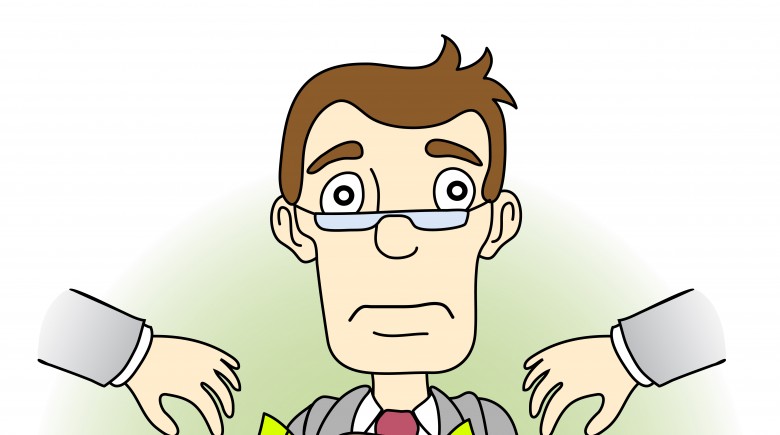It was so long ago that I heard the term OPM that it probably is no longer up there with the use of “Dude” (younger people who often seem to use it every other word) and “man,” which I still hear often.
In case you wonder, OPM is other people’s money. The idea seems to be everywhere. And it is understandable. Why risk your own money when you can use somebody else’s?
This is particularly tempting for real estate investors now because cash deals are often required to make buys. Who has cash on hand?
The answer is nobody. Or practically nobody.
So here’s a common topic in the area: “How to use other people’s money to pay for your investment.” (if you don’t believe me, and like the idea, check it out: you’ll find plenty of suggestions).
Under current conditions with bank loans iffy, the best answer for some investors is to hit up friends and relatives to make contributions. In that way, investors can accumulate large enough sums to buy properties.
Nothing could be simpler, could it?
But I don’t urge that unless there is no other option.
I say this despite CW (conventional wisdom) which just about is universal in urging real estate investors to use OPM (these acronyms get compulsive if you don’t watch it, man).
As I say, you may have to do it under current conditions but if you do, I have three recommendations for dealing with your investors:
- Make sure they know the downside (they can lose their money as well as the upside, which I am sure you don’t need me to tell you how to present that part. At its simplest, this is just honesty, nothing more or less).
- Try to make sure that are not using a poverty-stricken, 95-year-old widow’s last $300 in her SunTrust Christmas fund. Sure, this is an exaggeration but you know what I mean. Believe me, even if you desperately need the money, you don’t want this on your conscience.
- So who should you get to invest? Simply and exclusively, those who can afford to lose money. Doctors and lawyers and accountants and others gainfully-employed who have more money than they need for daily life. These are individuals with discretionary income. No, they also won’t like losing money but this is the difference between getting a cold and taking two aspirins and breaking both legs in an auto accident. No comparison.
You might make moral arguments for this stance, but there are also practical arguments.
In the end, if at all possible, you might want to consider charting your own course by using your own money. That’s more difficult to you but offers less (less? It gets rid of it) risk to your friends and relatives. As I said, you will sleep better. And that’s like money in the bank, dude.
It was so long ago that I heard the term OPM that it probably is no longer up there with the use of “Dude” (younger people who often seem to use it every other word) and “man,” which I still hear often.
In case you wonder, OPM is other people’s money. The idea seems to be everywhere. And it is understandable. Why risk your own money when you can use somebody else’s?
This is particularly tempting for real estate investors now because cash deals are often required to make buys. Who has cash on hand?
The answer is nobody. Or practically nobody.
So here’s a common topic in the area: “How to use other people’s money to pay for your investment.” (if you don’t believe me, and like the idea, check it out: you’ll find plenty of suggestions).
Under current conditions with bank loans iffy, the best answer for some investors is to hit up friends and relatives to make contributions. In that way, investors can accumulate large enough sums to buy properties.
Nothing could be simpler, could it?
But I don’t urge that unless there is no other option.
I say this despite CW (conventional wisdom) which just about is universal in urging real estate investors to use OPM (these acronyms get compulsive if you don’t watch it, man).
As I say, you may have to do it under current conditions but if you do, I have three recommendations for dealing with your investors:
- Make sure they know the downside (they can lose their money as well as the upside, which I am sure you don’t need me to tell you how to present that part. At its simplest, this is just honesty, nothing more or less).
- Try to make sure that are not using a poverty-stricken, 95-year-old widow’s last $300 in her SunTrust Christmas fund. Sure, this is an exaggeration but you know what I mean. Believe me, even if you desperately need the money, you don’t want this on your conscience.
- So who should you get to invest? Simply and exclusively, those who can afford to lose money. Doctors and lawyers and accountants and others gainfully-employed who have more money than they need for daily life. These are individuals with discretionary income. No, they also won’t like losing money but this is the difference between getting a cold and taking two aspirins and breaking both legs in an auto accident. No comparison.
You might make moral arguments for this stance, but there are also practical arguments.
In the end, if at all possible, you might want to consider charting your own course by using your own money. That’s more difficult to you but offers less (less? It gets rid of it) risk to your friends and relatives. As I said, you will sleep better. And that’s like money in the bank, dude.




